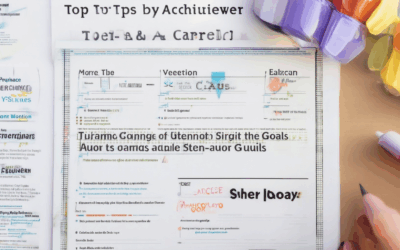Mindfulness practices have emerged as a powerful tool in the modern quest for stress relief, offering a natural and holistic approach to managing the overwhelming demands of daily life. By cultivating awareness and intentionality, mindfulness meditation provides a scientifically backed method to counteract the effects of chronic stress, fostering emotional balance and physical well-being. Whether through simple breathing exercises or guided meditations, mindfulness techniques empower individuals to reconnect with their inner selves, promoting relaxation and clarity in an increasingly fast-paced world. This article delves into the essential components of mindfulness—its three core principles and five transformative practices—that can help readers achieve lasting stress relief and improve their overall quality of life. From understanding the science behind mindfulness to exploring practical techniques, this comprehensive guide will walk you through the ins and outs of mindfulness meditation, providing actionable strategies to reduce stress, enhance sleep, and cultivate a deeper sense of peace. Discover how mindfulness can become a cornerstone of your self-care routine, helping you navigate life’s challenges with resilience and grace.

How Does Mindfulness Relieve Stress?
Mindfulness is a practice rooted in awareness and acceptance, which can significantly reduce stress by altering our physiological and psychological responses to challenging situations.
The Science Behind Mindfulness and Stress Reduction
Mindfulness practices, such as meditation and deep breathing, have been shown to decrease the body’s production of cortisol, the primary hormone associated with stress. By cultivating present-moment awareness, individuals can observe their thoughts and emotions without judgment, thereby reducing the intensity of the stress response.
Practical Techniques to Reduce Stress Through Mindfulness
- Meditation: Regular meditation helps quiet the mind, allowing for better focus and emotional regulation. Even brief sessions can lower stress levels.
- Body Scan: Spending a few minutes focusing on your body’s sensations can promote relaxation and reduce muscle tension.
- Breathing Exercises: Techniques like box breathing (inhale for four counts, hold for four, exhale for four, hold for four) can quickly induce a calm state.
- Gratitude Practice: Reflecting on positive aspects of life can shift focus away from stressors.
How 7Del Can Support Your Mindfulness Journey
At 7Del, we believe in empowering individuals with tools to enhance their well-being. Explore our resources on mindfulness techniques and discover how they can transform your life. Our guides on stress management provide actionable steps to find peace and balance.
Competition and Choices in Mindfulness Resources
While there are several platforms offering mindfulness content, 7Del stands out for its comprehensive approach and user-centric design. We encourage exploring various resources, including those from competitors like MindfulLiving and StressEase , to find what works best for you.
Remember, the key is consistency and adaptability in your practice. With the right tools and dedication, mindfulness can be a powerful ally in managing stress effectively.
What Are the 3 C’s of Mindfulness?
Mindfulness is often broken down into three key components, known collectively as the “Three Cs.” These principles guide individuals in developing a deeper understanding and practice of mindfulness. Here’s a breakdown of each:
- Attention :
- Definition : Focuses on cultivating present-moment awareness.
- Importance : It involves noticing sensations, emotions, and thoughts without judgment. This helps in staying grounded and engaged in the current experience.
- Acceptance :
- Definition : Involves embracing experiences with curiosity and openness.
- Importance : It encourages individuals to accept their thoughts and feelings as they are, fostering a non-judgmental mindset.
- Intention :
- Definition : Relates to setting a purpose or direction for one’s mindfulness practice.
- Importance : It helps in aligning the practice with personal goals, such as reducing stress or enhancing well-being.
By integrating these three elements, mindfulness becomes a holistic practice that promotes mental, emotional, and physical well-being.

What are the 5 R’s of mindfulness?
- R – Resilience : Cultivating the ability to adapt and recover from life’s challenges, fostering emotional strength and a positive outlook.
- R – Responsibility : Taking ownership of one’s thoughts, words, and actions, understanding the impact of choices and decisions.
- R – Reflection : Engaging in introspection and self-awareness, learning from past experiences to grow and improve.
- R – Relationships : Building and nurturing meaningful connections with others, fostering collaboration and support systems.
- R – Routine : Establishing consistent practices that promote mindfulness, such as meditation, journaling, or regular self-care rituals.

How to Release Stress from Your Body
Stress is a natural response to challenges in life, but chronic stress can take a toll on your physical and mental health. Here are effective ways to release stress from your body:
- Practice Deep Breathing: Engage in deep breathing exercises to calm your nervous system. Inhale deeply through your nose for 4 seconds, hold for 4 seconds, and exhale slowly through your mouth for 6 seconds. Repeat this process several times to reduce tension.
- Get Moving: Physical activity is a powerful stress reliever. Try yoga, jogging, or simply stretching to release muscle tension and promote blood flow.
- Mindfulness and Meditation: Spend a few minutes daily practicing mindfulness or meditation to center your thoughts and reduce stress. Focus on your breath or repeat a calming mantra to clear your mind.
- Progressive Muscle Relaxation: Tense and then relax each muscle group in your body, starting from your toes and working upwards to your head. This helps release physical tension caused by stress.
- Journal Your Thoughts: Writing down your thoughts and feelings can help you process emotions and gain perspective. This can be particularly effective before bed to clear your mind.
- Connect with Others: Reach out to friends, family, or a support group to share your experiences. Social connections can provide comfort and reduce feelings of isolation.
- Try Humor: Laughter can be a great stress reliever. Watch a comedy show, read a funny book, or spend time with someone who makes you laugh to lift your spirits.
- Listen to Music: Music has a calming effect on the brain. Play soothing songs or classical music to help your body and mind relax.
By incorporating these techniques into your daily routine, you can effectively manage stress and improve your overall well-being. Remember to be patient and kind to yourself during this process, as reducing stress may take time and consistent effort.
How to Release Stuck Stress
To effectively manage and release stuck stress, consider implementing a combination of mindfulness, relaxation techniques, and proactive approaches. Here’s a structured guide to help you navigate through stressful situations:
Mindfulness and Relaxation Techniques
- Meditation : Practice mindfulness meditation to center your thoughts and reduce anxiety. Focus on your breath and observe your emotions without judgment.
- Breathing Exercises : Engage in deep breathing exercises, such as diaphragmatic breathing, to calm your nervous system and promote relaxation.
- Progressive Muscle Relaxation : Tense and then relax each muscle group in your body, starting from your toes to your head, to relieve physical tension.
Actionable Steps for Stress Relief
- Physical Activity : Incorporate exercise into your routine, whether it’s a brisk walk, yoga, or strength training, to boost endorphins and reduce stress.
- Journaling : Write down your thoughts and feelings to gain clarity and release pent-up emotions.
- Seek Support : Talk to a trusted friend, family member, or therapist to share your concerns and gain perspective.
Additional Tips for Managing Stress
- Set Boundaries : Learn to say no and prioritize tasks to avoid overwhelm.
- Practice Gratitude : Reflect on positive aspects of your life to shift your mindset.
- Stay Connected : Maintain healthy social connections to reduce feelings of isolation.
By integrating these strategies, you can better manage stress and find balance in your life. Remember, taking care of your well-being is essential for overall happiness and success. For more resources and tools to enhance your wellness journey, visit 7del.net .

How to Relax Your Mind When Stressed
When life gets overwhelming, finding ways to relax your mind is essential for maintaining emotional and psychological well-being. Stress can take a toll on your mental health, but there are proven techniques to manage it effectively. Here are some effective methods to help you unwind and find peace:
Practice Deep Breathing
Deep breathing is a simple yet powerful tool to reduce stress. Follow these steps:
- Inhale deeply through your nose for four seconds.
- Hold your breath for four seconds.
- Exhale slowly through your mouth for six seconds.
- Repeat this process for five to ten minutes.
This technique helps calm your nervous system and lowers cortisol levels, the body’s primary stress hormone.
Mindfulness Meditation
Meditation is a practice that allows you to observe your thoughts without judgment. Here’s how to get started:
- Find a quiet space where you won’t be disturbed.
- Sit comfortably with your eyes closed.
- Focus on your breath, noticing the sensation of air moving in and out.
- If your mind wanders, gently bring your attention back to your breath.
- Persist for just five minutes each day, gradually increasing your duration over time.
Regular meditation can significantly reduce stress and improve your overall sense of well-being.
Engage in Physical Activity
Exercise is a natural way to release tension and boost endorphins, chemicals in your brain that act as natural painkillers. Try these activities:
- Go for a brisk walk around your neighborhood.
- Try yoga or Pilates for strength and flexibility.
- Dance to your favorite music for a fun and energetic workout.
- Play a sport or game you enjoy, like basketball or tennis.
Even short sessions can make a difference, so aim for 30 minutes most days of the week.
Write Down Your Thoughts
Journaling can be a therapeutic outlet for expressing your emotions and gaining clarity. Here’s how to start:
- Grab a notebook or open a digital journal.
- Write down what’s on your mind without worrying about grammar or spelling.
- Describe your feelings and any stressful events you’re facing.
- Reflect on what you’ve written and identify patterns or underlying issues.
This process can help you process emotions and develop a clearer perspective.
Connect With Others
Social support is crucial during stressful times. Don’t hesitate to reach out to friends, family, or a professional who can offer understanding and guidance:
- Share your feelings with a trusted confidant.
- Join a support group or community forum.
- Seek help from a therapist or counselor if needed.
Having someone to talk to can alleviate feelings of isolation and provide valuable emotional support.
Set Realistic Goals
Unrealistic expectations can lead to frustration and stress. Break tasks into smaller, manageable steps:
- Identify what needs to be accomplished.
- Break larger tasks into smaller, achievable actions.
- Focus on progress rather than perfection.
- Celebrate completing each step, no matter how small.
This approach can help you feel more in control and less overwhelmed.
Stay Organized
Clutter and disorganization can contribute to stress. Create systems to manage your responsibilities:
- Use planners or digital tools to track important dates and tasks.
- declutter your living spaces to promote calm and orderliness.
- Establish a routine that includes time for work, relaxation, and hobbies.
A structured environment can make it easier to manage stress and maintain balance.
Limit Stimulants
Certain substances can increase stress levels. Reduce your intake of:
- Caffeine-containing beverages like coffee and tea.
- Alcohol, which can disrupt sleep patterns.
- Tobacco products, which can impair circulation and breathing.
Choosing healthier alternatives can help you stay calm and focused.
Avoid Overeating
What you eat can impact your mood and energy levels. Opt for:
- Leafy greens, whole grains, and lean proteins.
- Fruits and vegetables rich in vitamins and minerals.
- Healthy fats like avocados and nuts.
- Beverages like water, herbal teas, and smoothies.
Eating nourishing foods can help stabilize your mood and reduce stress-related cravings.
Get Enough Sleep
Sleep is essential for recovery and mental clarity. Aim for seven to nine hours per night by:
- Creating a relaxing bedtime routine.
- Ensuring your sleep environment is comfortable and quiet.
- Consistently waking up and going to bed at the same time.
- Limiting screen time before bed to improve sleep quality.
Quality sleep can significantly improve your ability to handle stress.
Explore Creative Outlets
Engaging in creative activities can be a powerful stress reliever. Try:
- Painting, drawing, or crafting.
- Writing poetry or journaling.
- Learning a new skill or hobby.
- Playing an instrument or singing.
Creative expression can provide an outlet for emotions and foster a sense of accomplishment.
Stay Positive
Cultivating a positive mindset can help you navigate stress more effectively. Practice:
- Gratitude journaling by noting things you’re thankful for.
- Challenging negative thoughts and replacing them with positive ones.
- Visualizing yourself in peaceful, calming situations.
Positive thinking can shift your focus from problems to solutions.
Consider Professional Help
If stress becomes overwhelming, seeking help from a mental health professional can make a significant difference. They can provide tailored strategies and support to help you manage your stress effectively.
By incorporating these techniques into your daily life, you can find ways to relax your mind and reduce stress. Remember, taking care of your mental health is just as important as physical health.




0 Comments